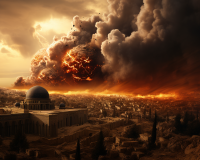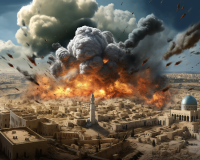Jolani’s Reign of Terror: The Biden Administration’s Gift to Syria
EU leaders dream Kamala has won. Phantom pain of inexistent (not anymore) globalism, After being for decades obedient slaves of US and totally depending on US in security issues EU pretends now to be something “sovereign”. Something like left liberal Civilisation-State - both anti-Russian and anti-American. Weird game.











